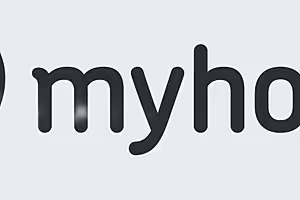
A top law firm has launched an investigation into a bogus memo that claims to have come from the company advising the public on paying the household charge.
Dublin-based McCann Fitzgerald has informed people who received the memo via email and leaflet drops that it has nothing to do with the firm, even though it contains its logo and website address.
The fake advice relates to the Government's €100 household tax, which was rolled out at the start of the year.
A McCann Fitzgerald spokesman advised the media not to print details of the memo, which claims that the statute implementing the charge cannot affect members of the public if they do not consent to it.
"The memorandum/email is not a McCann FitzGerald document, it has not been prepared by the firm and it does not express a legal opinion of the firm," said the spokesman.
The firm is trying to find out how its name came to be associated with the document, which has been circulating the internet and social media sites this week.
The Government introduced the flat household tax on January 1.
Each house is required to register for the charge by March 31 and must pay €100 for the year.
The Government hopes to raise €160m by the end of 2012 - money that will fund public services, including footpaths, parks and libraries.
So far only just over 133,000 households have registered, generating just over €13m.
The Campaign Against the Household Charge has distanced themselves from the memo and advised the public to ignore the information in the emails and leaflets, saying it is legally incorrect.
Spokesman Gregor Kerr said the group contacted McCann Fitzgerald after realising the false information had gone viral.
"The campaign is very concerned that people are believing this information," said Mr Gregor.
"It's very important that in standing together we will resist this charge, with mass co-operation in the communities. The information in these emails goes against what the campaign stands for."
He said the memo advises people to simply ignore the charge.
"We're asking people to stand up and tell the Government they are not going to pay it, to attend meetings and to say you stand with your neighbours," he went on.
Mr Gregor added that he believes several hundred thousand households will not register for the tax - both in protest and because they cannot afford it.
"It's impossible for the Government to take those people to court because the court system is chock-a-block," he said.
"And if anyone is summoned to court, they can rest assured they will not be going alone as we will use that as an opportunity for a mass protest."
Meanwhile, trade union Unite has pledged its support to the campaign and urged its members not to register for the household tax.
Regional secretary Jimmy Kelly said the union was not against broadening the tax base for those rich enough to pay.
"We believe it is right there should be a tax based on property as exists widely and generally fairly throughout Europe, but not on the family home of low to middle income earners and not at the scandalous flat rate we are being asked to pay in the short term," Mr Kelly went on.
"As of today, we are formally opposing the household charge that is being levied without care or thought for its impact on every household in this country."





